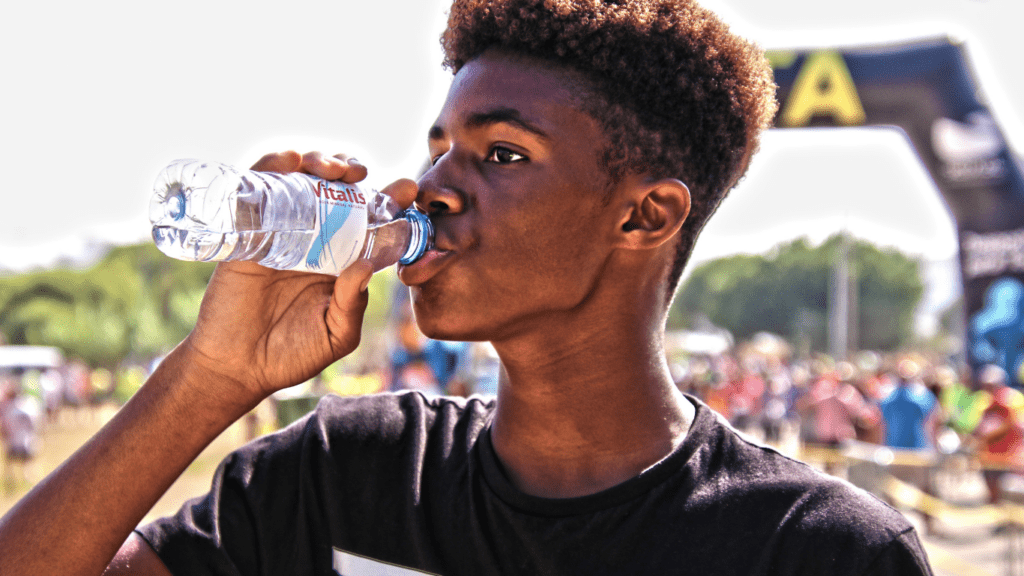Understanding Sports Hydration
Sports hydration involves the strategic management of fluid and electrolyte intake, balancing losses during physical activities. During exercise, the body loses water and electrolytes, primarily through sweat. This loss affects physical performance and can influence other bodily functions. Maintaining proper hydration levels is vital to sustain energy, regulate body temperature, and maintain cognitive function.
The central components of sports hydration include water, sodium, potassium, and other electrolytes. Water rehydrates, while electrolytes like sodium and potassium help maintain fluid balance and support nerve function. It’s essential to understand that hydration needs vary based on individual characteristics, environmental conditions, and exercise intensity.
Studies indicate that even a small loss of body water, around 1-2%, can impair athletic performance, affecting endurance and increasing fatigue. Therefore, tailoring a hydration strategy to individual needs ensures efficiency during sports activities. Monitoring urine color or body weight before and after workouts can provide insights into hydration levels.
Ultimately, a personalized approach to hydration, considering sweat rate and exercise duration, supports improved performance and recovery.
The Science Behind Hydration
After understanding how hydration impacts performance, it’s crucial to delve into the science behind it. Hydration involves more than just water consumption. It encompasses a complex balance of fluids and electrolytes that the body requires to function optimally during athletic activities.
The Role of Electrolytes
Electrolytes like:
- sodium
- potassium
- calcium
- magnesium
play vital roles in maintaining fluid balance within the body. Sodium helps regulate water in cells, while potassium supports muscle function.
Calcium is essential for muscle contractions, and magnesium aids in energy production. When sweating intensively during sports, losing these electrolytes can lead to imbalances.
Research indicates that replacing lost electrolytes quickly is crucial for sustaining peak performance and preventing cramps or fatigue. Sports drinks often include these key electrolytes to help athletes replenish losses efficiently.
The Importance of Fluid Balance
- Fluid balance is fundamental to athletic performance, directly affecting hydration levels.
- The body relies on a precise amount of fluids for temperature regulation, nutrient transport, and waste elimination.
- Inadequate fluid intake can result in dehydration, compromising endurance and cognitive sharpness.
- Studies highlight that maintaining fluid equilibrium supports energy levels and thermoregulation.
- Observing changes in body weight pre-and post-exercise or monitoring urine color offers insights into hydration status, helping athletes adjust their fluid intake appropriately for peak performance and quick recovery.
Benefits of Proper Hydration in Sports

Proper hydration significantly boosts sports performance. Maintaining optimal fluid levels enhances endurance by preventing the early onset of fatigue. With adequate hydration, my aerobic capacity increases, allowing for longer periods of sustained exercise without a decline in performance. Staying hydrated also aids recovery after exercise. By facilitating efficient nutrient transport and waste elimination, it reduces muscle soreness and accelerates healing processes.
Hydration supports mental sharpness alongside physical benefits. My cognitive function, including concentration and decision-making, improves with sufficient fluid intake. This clarity proves critical in competitive scenarios where quick, accurate judgments are essential.
Regulating body temperature is crucial during physical exertion. Proper hydration ensures efficient sweat production, which helps cool my body. This thermoregulation prevents overheating, allowing me to perform optimally even in high temperatures.
Electrolytes obtained through hydration contribute to muscle function. They support nerve impulses and muscle contractions impacting my strength and coordination. Adequate electrolyte levels prevent cramps and fatigue, both of which detract from peak athletic performance.
Overall, proper hydration lays the foundation for successful and sustained sports activities by enhancing endurance, supporting recovery, sharpening mental faculties, and regulating temperature.
Common Myths About Sports Hydration
Understanding the science of sports hydration is crucial, but myths can cloud judgment. It’s important to dispel these misconceptions to optimize hydration strategies.
Myth: Water is Enough for All Athletes
Believing that water suffices for every athletic activity overlooks the body’s need for electrolytes. While water is essential, it’s not always sufficient in high-intensity or endurance sports where significant sweat and electrolyte loss occur. Consuming beverages with sodium, potassium, and other essential electrolytes prevents imbalances and maintains optimal performance. For example, marathon runners, who lose large amounts of sodium, might need sports drinks to replenish their body’s reserves. Without electrolyte replacement, athletes risk hyponatremia (low blood sodium levels), which can impair performance and pose health risks.
Myth: All Sports Drinks Are the Same
Assuming all sports drinks offer identical benefits ignores their varied formulations. Sports drinks differ in electrolyte content, carbohydrate levels, and flavoring, impacting their suitability for different activities.
Some are designed for endurance sports and offer higher carbohydrate concentrations for prolonged energy, while others focus on rapid hydration with low sugar content, catering to shorter, intense workouts.
Choosing the right drink depends on the sport’s duration, intensity, and personal tolerance to specific ingredients. Differentiating between isotonic, hypotonic, and hypertonic drinks is essential to align with hydration needs during varying physical exertions.
Choosing the Right Hydration Strategy
Finding the most effective hydration strategy involves understanding individual needs. It’s essential to align with personal characteristics and exercise demands to enhance performance.
Personalized Hydration Plans
I emphasize that a personalized approach takes into account factors like body weight, sweat rate, and exercise conditions. An athlete weighing more typically needs more fluids. Sweat tests can measure electrolyte loss, guiding appropriate intake. Consider environmental elements; for instance, high humidity increases fluid loss, affecting your hydration plan.
Alternative Hydration Options
Diverse hydration options cater to different preferences and needs beyond water. Sports drinks with electrolytes and carbohydrates support high-intensity efforts. Consider coconut water for its natural electrolyte content, although its sodium levels may not suit all athletes. Other alternatives include hydration tablets or powders which allow for tailored electrolyte mixing, meeting specific exercise requirements.
